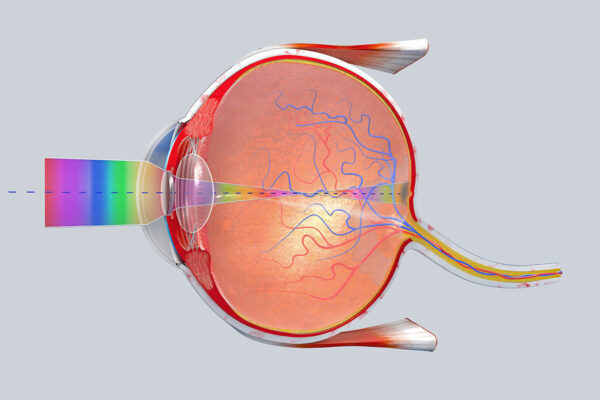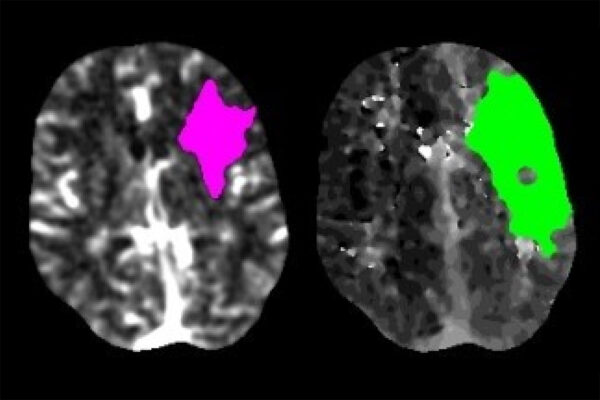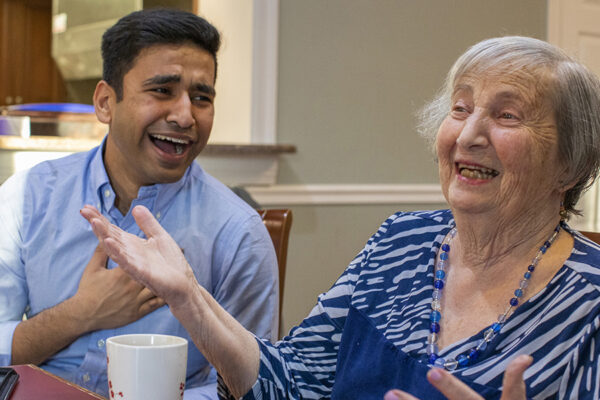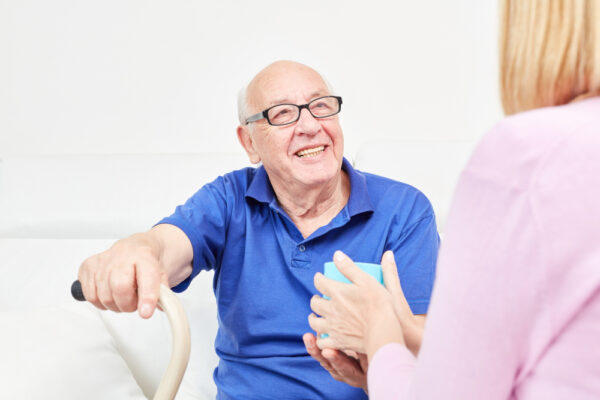Stronger memories can help us make sense of future changes
Jeffrey Zacks’s latest research turns on its head some popular beliefs about memory, showing that a failed prediction isn’t simply a failure, but also a cue which can help people update their understanding — as long as they realize their prediction was wrong.
For all ages
What would a truly intergenerational community look like? Three WashU scholars explain how a community can become more accessible for people of every age.
Aging memories may not be ‘worse,’ just ‘different’
A study from the Department of Psychological & Brain Sciences in Arts & Sciences adds nuance to the idea that an aging memory is a poor one and finds a potential correlation between the way people process the boundaries of events and episodic memory.
Scientists map how human retinal cells relay information to brain
Researchers at Washington University School of Medicine report that specific types of retinal cells that carry the vast majority of visual signals from the human retina to the brain efficiently process and compress that information so it can be transferred. The study may advance our understanding of eye diseases involving the retina.
Stroke evaluations drop by nearly 40% during COVID-19 pandemic
A study led by the School of Medicine at Washington University in St. Louis has found that stroke evaluations fell by nearly 40% during a period of the COVID-19 pandemic, suggesting that many stroke patients are not seeking potentially life-saving medical treatment.
The pandemic’s impact on older adults
Moving through a global pandemic has severely impacted every American, but maybe none more than older people. The COVID-19 pandemic has placed a spotlight on the deleterious effects of deep-seated ageism, sexism and racism on older Americans, suggests a new paper from the Harvey A. Friedman Center for Aging at Washington University in St. Louis.
WashU Expert: Older Americans are not expendable
Many countries reacted slowly and inadequately to the spread of COVID-19. Some critics have said this is due to initial reports of the disease, which indicated that it mainly affected older populations. “Older adults are not some kind of expendable commodity,” said Nancy Morrow-Howell, the Betty Bofinger Brown Distinguished Professor of Social Policy at the Brown School at Washington University in St. Louis and an international leader in gerontology.
Graduating senior to stay in St. Louis, expand nonprofit
Harsh Moolani initially shrugged off a friend’s advice to quit trying to do it all. Then he considered the source: a remarkable woman with a successful career, good friends — and only a few months to live. Moolani is set to graduate in December with a degree in neuroscience in Arts & Sciences. He will remain in St. Louis and expand Create Circles, the nonprofit he founded to connect older and younger adults.
Families with long, healthy life spans focus of $68 million grant
With the help of a grant from the National Institute on Aging of the National Institutes of Health (NIH), researchers at the School of Medicine are leading the Long Life Family Study, which includes several generations of families with unusual concentrations of long-lived individuals. The goal is to uncover genetic factors that play roles in long life spans.
Modifications to social, physical spaces make living at home easier for older adults
Social and physical modifications can make aging in place more accessible at the same time they positively impact cognitive function in older adults living alone, finds a new study from the Brown School at Washington University in St. Louis.
Older Stories









